I am writing a library that uses the Linux asynchronous I/O system calls, and would like to know why the io_submit function is exhibiting poor scaling on the ext4 file system. If possible, what can I do to get io_submit not to block for large IO request sizes? I already do the following (as described here):
- Use
O_DIRECT. - Align the IO buffer to a 512-byte boundary.
- Set the buffer size to a multiple of the page size.
In order to observe how long the kernel spends in io_submit, I ran a test in which I created a 1 Gb test file using dd and /dev/urandom, and repeatedly dropped the system cache (sync; echo 1 > /proc/sys/vm/drop_caches) and read increasingly larger portions of the file. At each iteration, I printed the time taken by io_submit and the time spent waiting for the read request to finish. I ran the following experiment on an x86-64 system running Arch Linux, with kernel version 3.11. The machine has an SSD and a Core i7 CPU. The first graph plots the number of pages read against the time spent waiting for io_submit to finish. The second graph displays the time spent waiting for the read request to finish. The times are measured in seconds.


For comparison, I created a similar test that uses synchronous IO by means of pread. Here are the results:

It seems that the asynchronous IO works as expected up to request sizes of around 20,000 pages. After that, io_submit blocks. These observations lead to the following questions:
- Why isn't the execution time of
io_submitconstant? - What is causing this poor scaling behavior?
- Do I need to split up all read requests on ext4 file systems into multiple requests, each of size less than 20,000 pages?
- Where does this "magic" value of 20,000 come from? If I run my program on another Linux system, how can I determine the largest IO request size to use without experiencing poor scaling behavior?
The code used to test the asynchronous IO follows below. I can add other source listings if you think they are relevant, but I tried to post only the details that I thought might be relevant.
#include <cstddef>
#include <cstdint>
#include <cstring>
#include <chrono>
#include <iostream>
#include <memory>
#include <fcntl.h>
#include <stdio.h>
#include <time.h>
#include <unistd.h>
// For `__NR_*` system call definitions.
#include <sys/syscall.h>
#include <linux/aio_abi.h>
static int
io_setup(unsigned n, aio_context_t* c)
{
return syscall(__NR_io_setup, n, c);
}
static int
io_destroy(aio_context_t c)
{
return syscall(__NR_io_destroy, c);
}
static int
io_submit(aio_context_t c, long n, iocb** b)
{
return syscall(__NR_io_submit, c, n, b);
}
static int
io_getevents(aio_context_t c, long min, long max, io_event* e, timespec* t)
{
return syscall(__NR_io_getevents, c, min, max, e, t);
}
int main(int argc, char** argv)
{
using namespace std::chrono;
const auto n = 4096 * size_t(std::atoi(argv[1]));
// Initialize the file descriptor. If O_DIRECT is not used, the kernel
// will block on `io_submit` until the job finishes, because non-direct
// IO via the `aio` interface is not implemented (to my knowledge).
auto fd = ::open("dat/test.dat", O_RDONLY | O_DIRECT | O_NOATIME);
if (fd < 0) {
::perror("Error opening file");
return EXIT_FAILURE;
}
char* p;
auto r = ::posix_memalign((void**)&p, 512, n);
if (r != 0) {
std::cerr << "posix_memalign failed." << std::endl;
return EXIT_FAILURE;
}
auto del = [](char* p) { std::free(p); };
std::unique_ptr<char[], decltype(del)> buf{p, del};
// Initialize the IO context.
aio_context_t c{0};
r = io_setup(4, &c);
if (r < 0) {
::perror("Error invoking io_setup");
return EXIT_FAILURE;
}
// Setup I/O control block.
iocb b;
std::memset(&b, 0, sizeof(b));
b.aio_fildes = fd;
b.aio_lio_opcode = IOCB_CMD_PREAD;
// Command-specific options for `pread`.
b.aio_buf = (uint64_t)buf.get();
b.aio_offset = 0;
b.aio_nbytes = n;
iocb* bs[1] = {&b};
auto t1 = high_resolution_clock::now();
auto r = io_submit(c, 1, bs);
if (r != 1) {
if (r == -1) {
::perror("Error invoking io_submit");
}
else {
std::cerr << "Could not submit request." << std::endl;
}
return EXIT_FAILURE;
}
auto t2 = high_resolution_clock::now();
auto count = duration_cast<duration<double>>(t2 - t1).count();
// Print the wait time.
std::cout << count << " ";
io_event e[1];
t1 = high_resolution_clock::now();
r = io_getevents(c, 1, 1, e, NULL);
t2 = high_resolution_clock::now();
count = duration_cast<duration<double>>(t2 - t1).count();
// Print the read time.
std::cout << count << std::endl;
r = io_destroy(c);
if (r < 0) {
::perror("Error invoking io_destroy");
return EXIT_FAILURE;
}
}